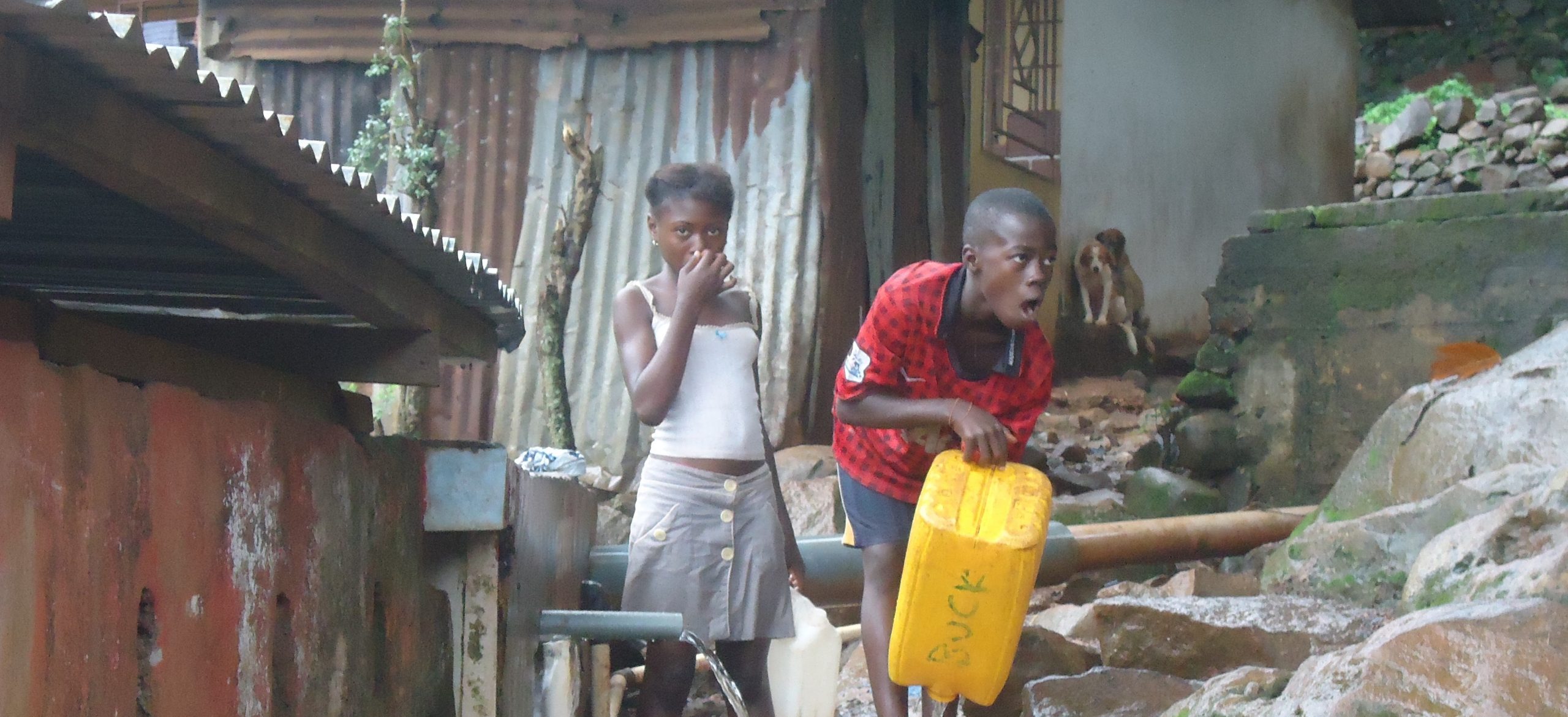These photographs were collected as part of research I conducted for my Masters’ thesis in Sierra Leone over the course of a two-month stay from June to August 2016. The purpose of my research was to investigate what has been achieved from disability advocacy efforts by a grassroots disability-rights NGO, One Family People. The majority of my data collection came from interviews and focus groups with young people with disabilities who are supported by this organisation, as well as members of the organisation’s staff, power-holders in the Sierra Leonean government and other disability activists in civil society.
The young people I met with have various different disabilities, including physical disabilities, mostly as a result of childhood polio, visual impairments, and speech and hearing impairments. In my focus group discussions with girls and boys with speech and hearing impairments, I needed to hire the assistance of a sign language interpreter. However, I found it problematic to facilitate an open dialogue, because every comment needed to be filtered through the translator for my understanding. Not only did this cause a significant delay in the conversation, it also risked an alteration in meaning which is ultimately the basis of qualitative research. Yet despite the challenges during our discussion, it was clear these young people have many important things to say, but are rarely listened to. Academics in the field of children and youth studies emphasize the importance of giving children and young people a voice in the research process, but these young people are literally without a voice because they do not use speech as their primary mode of communication. The methodological meanings of giving research participants a “voice” is not limited to that which is articulated, but can also be understood as that which is observed and experienced.
So I decided to loan a digital camera to five of the young people with speech and hearing impairments to take photographs in answer to the questions: “What is it like to be a young person in Sierra Leone? What do you enjoy? What are the challenges?”. I hoped that the camera would provide a more direct way of communication in a medium other than language. Each photographer kept the camera for two days, and took around 20-30 photos, before passing it to his or her friend.
Photography is an alternative way of generating knowledge, and this participatory photo-voice project gave me, a foreigner without a disability, a greater comprehension of the local realities of young people with speech and hearing impairments in Sierra Leone. This helped inform my understanding about the issues disability advocacy efforts need to address. Through the photo-voice project, I hoped to treat the young people with disabilities less as subjects of research and more as social actors in a participatory process that explores their lives. After they had taken the photographs, we re-grouped with the interpreter and the young people discussed their ideas and intentions behind each image.
[circles_gallery columns=”4″ ids=”3862,3861,3859,3860″]
Photo from on of the users of One Family People



